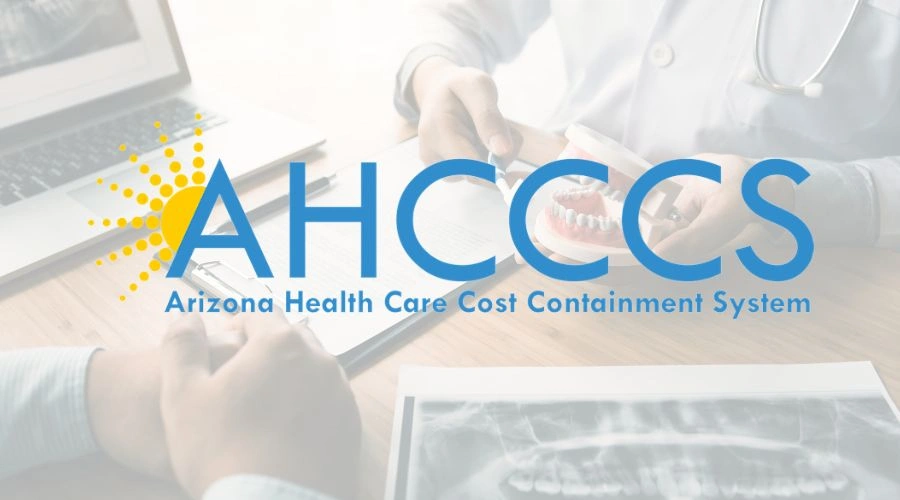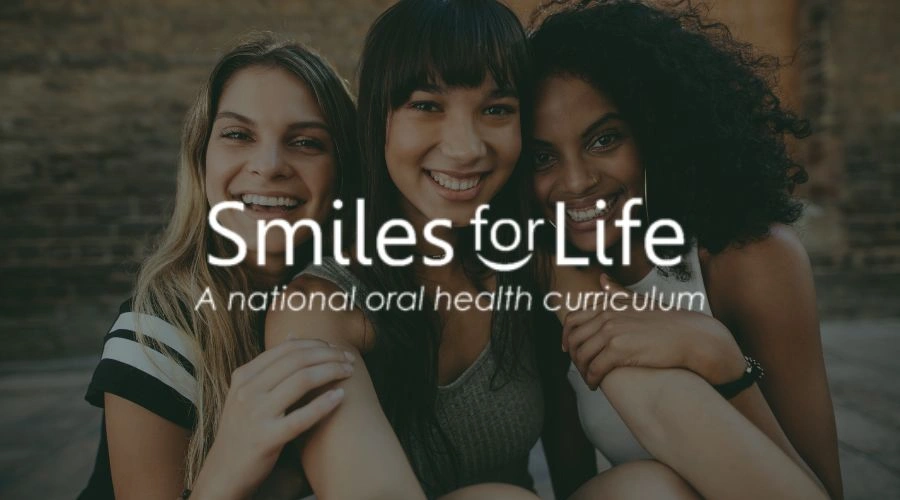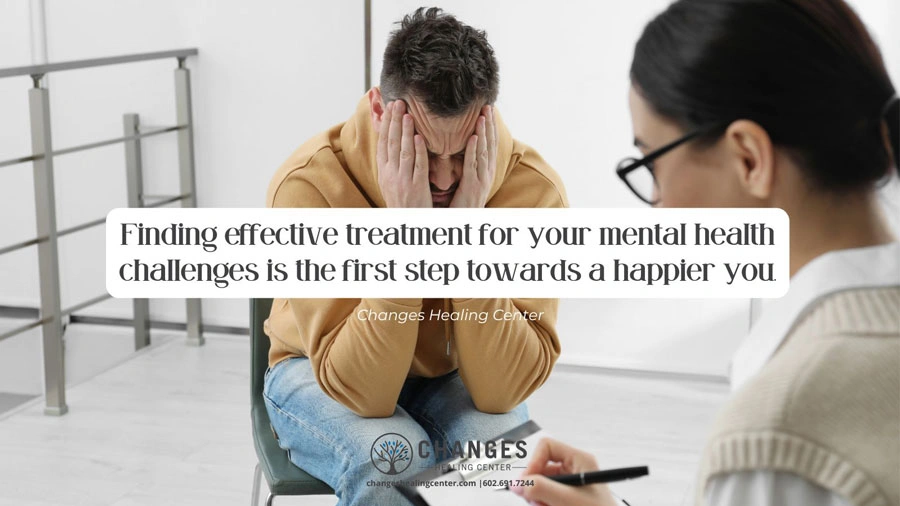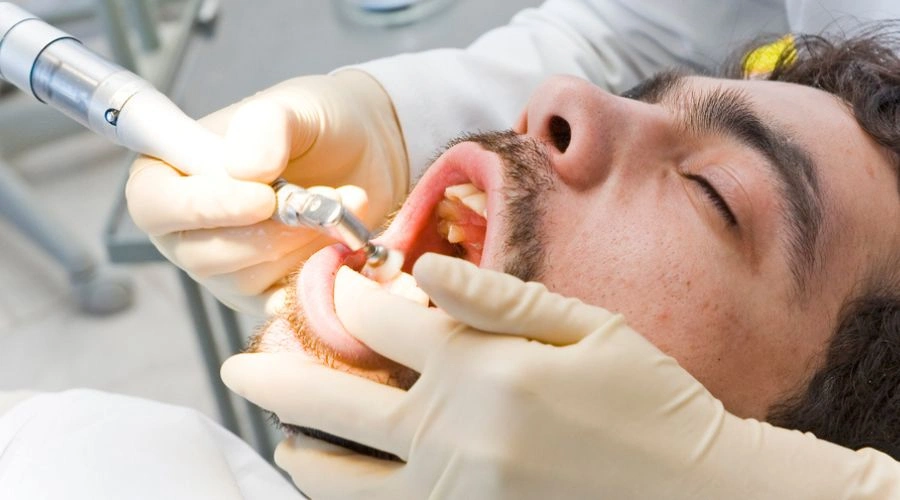Get Guidance and Current Sources for Free Dental Care in Recovery
Table of Contents
Dental grants for recovering addicts help address the oral health needs of people in recovery, including tooth loss and similar dental problems. Effective recovery must be holistic and support whole-person well-being, including dental work after alcohol abuse or drug use.
While Changes Healing Center does not directly provide dental services, we refer clients to grants and assistance for quality dental care and help them apply. Those receiving residential services at Changes can travel to a dental health care provider to attend necessary dental work appointments.
As a Joint Commission-accredited addiction and mental health treatment provider, we are understanding of the many facets of addiction on the total body, including the teeth.
Poor dental health is a sign of substance abuse that prevents recovering addicts from smiling when they should be celebrating their progress. Our resource list of available dental health resources helps people in recovery regain self-confidence after confronting their drug abuse problems.
Please note that this is a resource guide for finding grants, and that Changes does not offer dental care or grants directly.
Resources for Improving Dental Health in Recovery
Gum disease, meth mouth, tooth decay, and visible cavities are among the most apparent signs of substance use disorders. Whether the teeth have been impacted by the high sugar content of certain alcohol or the acidity of methamphetamine abuse, addiction takes a toll on the mouth.
Here are grant opportunities and programs that support dental treatment for people in recovery:
Recovery Community Organization (RCO) Dental Grant Program
The Substance Abuse and Mental Health Services Administration (SAMHSA) administers the RCO program. This is an opportunity they developed specifically to help people receive quality dental care after recovering from addiction.
Arizona Medicaid (AHCCCS)

The Arizona Health Care Cost Containment System has a dental component for eligible at-risk, low-income Arizonans to receive dental care at partner facilities. Those who qualify for AHCCCS coverage (and their immediate family members) are eligible for dental care, including preventive care, cleanings, teeth fillings, and other necessary procedures.
Neighborhood Outreach Access to Health (NOAH)
NOAH is another federal program that addresses poor dental health in low-income populations, including recovering addicts. It partners with local dental care providers through its Dental Connect programs and has several partnerships with providers in Phoenix, Arizona.
Arizona Department of Health Services (ADHS)
ADHS has many health initiatives, including dental care access for vulnerable Arizonans, including those who need a dentist after recovery. They collaborate with community health centers and dental clinics throughout the region to provide access to qualified dentists.
University of Arizona College of Medicine (Phoenix) and Delta Dental OHMI
U of A Phoenix has partnered with Delta Dental of Arizona to create the Oral Health in Medicine Initiative (OHMI). They integrate oral health education into medical training and provide hands-on training to students.
This provides a real-world experience for university students and services often-underserved residents, including those who have used different types of drugs.
Dental Emergency Relief Fund
Administered by Aspen Dental’s Emergency Relief Fund, recovering addicts and other people at risk can find hope from this private non-profit opportunity. They cover the cost of dental work for people who can’t afford dental care due to unforeseen emergencies.
People whose addiction came after a qualifying traumatic event may qualify for up to $3,000 in dental care.
Smiles for Life Dental Grant Program

Smiles for Life is a private, non-profit organization with a mission of increasing access to dental services to support overall health and wellness. They provide dentistry services to those with poor dental health, including people in treatment for drug use.
Their focus is on reducing the number of dental problems by offering grants, providing outreach services, and establishing free dental clinics.
Donated Dental Services (DDS)
The Dental Lifeline Network, a non-profit group, funds the DDS oral health program. Their funds make treatment possible for at-risk populations, including people with disabilities or mental health conditions, which can include substance abuse.
The program connects those with severe dental concerns with volunteer dentists who administer treatment.
The Recovery Foundation Scholarships
The Recovery Foundation helps people pay for addiction treatment costs through scholarships covering eligible costs, including medically necessary dentistry, with a $10 co-pay. The outreach and advocacy wing of the group advocates for collaboration and research to find more ways to help addicts lead a healthy life.
Why Does Oral Health Matter to Recovering Addicts?
Changes Healing Center knows that fixing the teeth is a pretty big deal. It means more than just a better appearance or a bright smile. The pain of decaying teeth can lead to a lack of self-esteem.
A lack of oral hygiene also focuses others’ attention on the teeth. That can become a real challenge when re-entering the job market. Poor teeth can even hold people back from gaining the confidence to seek employment; a good job is a powerful motivator for many to stay substance-free after treatment.
The Connection Between Drugs and Poor Oral Hygiene
Abusing some drugs like heroin, fentanyl, and marijuana can sometimes mean a general lack of self-care. The inattention to hygiene, including the teeth, can take a toll with long-term use.
The connection between the teeth and drugs is more direct with other drugs. For instance, people who rub cocaine on their gums and around the interior of the mouth may develop sores or abscesses that cause eventual tooth loss.
Meth and crack cocaine are acidic and have been proven to erode tooth enamel.
Expect Comprehensive, Holistic Care at Changes

The Changes Healing Center team cares about you as a whole person. We don’t see you as recovering addicts but as people whose alcohol or drug use is an illness that has caused great upheaval. We want to help you recover and enjoy all that life can offer. Here are some ways we can help you recover from addiction:
- Evidence-based counseling based on the latest research and innovations
- Individualized care that focuses on your specific needs
- Each clinician and counselor is qualified, experienced, and cares from the initial consultation to the end of treatment
- Inpatient/outpatient treatment for addiction and related mental illnesses
- Relapse prevention options offered, including a referral to community support groups to stay drug-free
- Insurance verification helps you get started without fear of high co-pays
- Assistance finding dental grants to help recovering addicts enjoy better oral health
- Alternative treatments offered, such as meditation, yoga, or other relaxation techniques for a well-rounded experience
Our primary goal is to give each person a fresh start and bring hope back into their lives.
A Drug and Alcohol-free Life is Possible at Changes
The most important move to make is to speak with our admissions team. They’ll provide an initial consultation and thoroughly answer all your questions. You don’t need to schedule this call in advance – connect with us any time, day or night.
After the phone consultation, we’ll verify your insurance coverage, allowing you to mentally focus on your needs instead of making phone calls. We will help you understand your benefits and will work hard to leverage your coverage with the goal of a $0 co-pay.
Finally, they will discuss your schedule and set your admission date. The process is quick and simple. We can often accept same-day or emergency admissions. Contact us today to get started.
